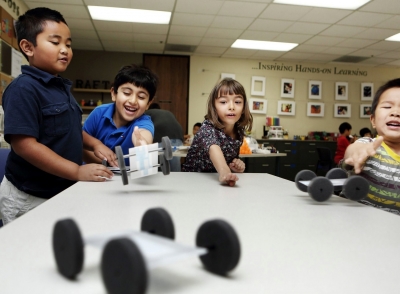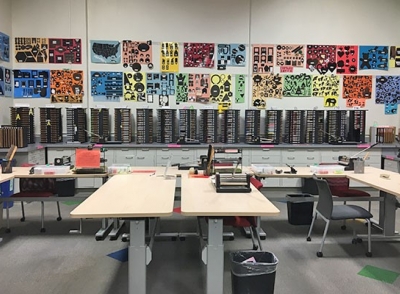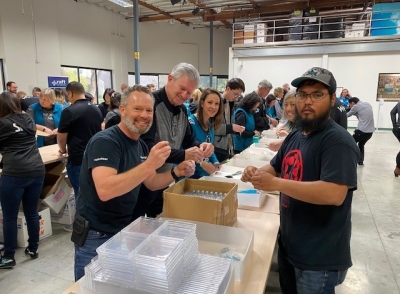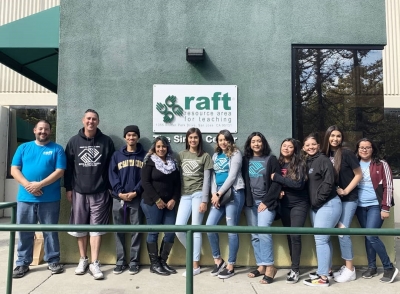Resource Area for Teaching
Turning Surplus Materials into Hands-on Science Lessons
How do you teach young learners Newton's laws of motion? You could go into a long lecture and chalkboard equations, or you could let students explore and experience the physics principles themselves, with a “Fizzy Rocket” STEAM Project Kit from nonprofit Resource Area for Teaching (RAFT). Assembled from surplus film containers, expired alka-seltzer tablets and foam pieces, this clever activity teaches kids about pressure and counter pressure, acid/base chemical reactions, and how to have fun learning.
“The fizzy rocket is one of hundreds of project kits we've developed to teach students Science, Technology, Engineering, Arts and Mathematics (STEAM),” explained RAFT Development Manager Kate Ball. Like all classroom and educator supplies available at RAFT's San Jose warehouse, the kits are sourced from surplus materials that would have otherwise gone to the landfill. From CDs, obsolete labels, and tongue depressors to plastic stir sticks, surplus printed bags or other oddities, RAFT's skilled materials team and education advisors will find a way to turn the donations into teaching tools, complete with guide sheets and teaching standard alignment. Although teachers are the main focus, RAFT's customers also include informal educators, scout leaders, after-school staff, parents, and guardians.
Free teaching tools for under-resourced schools
At the warehouse and online store, RAFT keeps prices for materials and project kits as low as possible or provides them for free using grant funding, like their recent $10,000 Reuse Grant from StopWaste. During the previous school year, the funding enabled RAFT to provide 2,500 STEAM Project Kits and activities to 1,050 students at Title-1 schools in Alameda County.
“Especially during the pandemic and home-based learning, we were so glad to serve these students who may not have access to the internet and need hands-on learning opportunities the most,” said Ball.
RAFT'S work not only makes a difference for teachers and students, but also for resource conservation. Between August 2020 and March 2021 alone, they repurposed and upcycled 450 cubic feet of material donations from Alameda County businesses and created partnerships with five new businesses for ongoing collaboration. “It's a win-win. Reusing those items for teaching helps businesses save on disposal cost and means better learning for our kids without the need to manufacture new stuff,” concluded Ball.
Learn more about RAFT here. For more information about StopWaste’s grants program and opportunities, click here.



